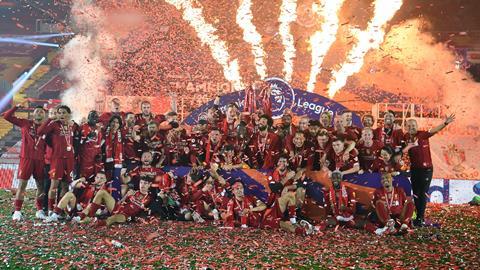Companies could be fined 10% of their global turnover among possible sanctions

The Competition and Markets Authority has opened an investigation into ITV, BT, Sky, and IMG regarding their purchase of freelance services for sport production and broadcasting.
The CMA specifies that “The investigation relates to the purchase by these companies of freelance services which support the production and broadcasting of sports content in the UK.” This could include the likes of freelance camera crew, runners, and other behind-the-scenes freelance workers.
All four companies have confirmed that they are co-operating with the CMA, with IMG confirming that it has been subject to an on-site inspection. You can read their full statements here.
It should be noted that the CMA is clear that there currently isn’t enough evidence to take further actions, and there is no assumption of guilt.
How, and how much, the CMA could fine broadcasters
The CMA has stated in a paper released in December 2021 that it considers some of the most serious infringements of competition law to be agreements between undertakings which fix prices or share markets, other cartel activities and serious abuses of a dominant position. This investigation is being opened under Section 25 of the Competition Act, which allows the CMA to look into potential cartels - which have to be agreements between entities at the same level of the supply chain, known as “horizontal agreements”, rather than between undertakings at different levels.
It also reveals that while there has to be a broad consistency in its sanctioning, it “is not bound by its previous decisions.” In addition, any prosecutions of individuals have no effect on the possible financial penalty to the companies.
The possible sanctions for the broadcasters include a fine of up to 10% of global turnover, as well as being made to sign a legal agreement that would in theory prevent the situation happening again. In the past it imposed fines totalling over £260 million for competition law breaches in the healthcare industry.
The fine is decided by the turnover of the undertaking, and seriousness of the infringment and need for deterrence. There can be adjustments to the fine for “leniency, settlement discounts and approval of a voluntary redress scheme.” Duration and relevant turnover to the activity are also taken into account, as well as the factors below.
Possible aggravating factors for fines
- persistent and repeated unreasonable behaviour that delays the CMA’s enforcement action
- role of the undertaking as a leader in, or an instigator of, the infringement
- involvement of directors or senior management
- retaliatory or other coercive measures taken against other undertakings aimed at ensuring the continuation of the infringement
- continuing the infringement after the start of the investigation
- repeated infringements by the same undertaking or other undertakings in the same group (recidivism)
- infringements which are committed intentionally rather than negligently
- retaliatory measures taken or commercial reprisal sought by the undertaking against a leniency applicant
- failure to comply with competition law following receipt of a warning or advisory letter in respect of the same or similar conduct.
Possible mitigating factors for fines
- role of the undertaking, for example, where the undertaking is acting under severe duress or pressure
- termination of the infringement as soon as the CMA intervenes
- cooperation which enables the enforcement process to be concluded more effectively and/or speedily
The next update on the CMA’s investigation is scheduled for January 2023.





No comments yet